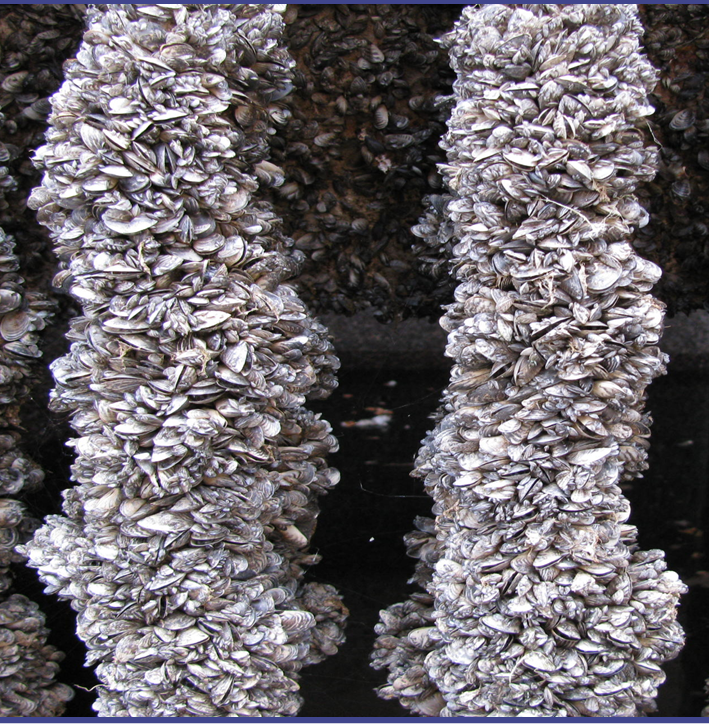Northwest continues to prepare in the event invasive mussels arrive
- March 14, 2014
- John Harrison

If the best offense is a good defense, the Northwest is well on its way toward being ready in the event invasive freshwater mussels take hold in the Columbia River Basin, as they have in the Colorado River and some of its major impoundments.
As the result of a workshop co-hosted by the Council and the Pacific States Marine Fisheries Commission (PSMFC) in 2013, 24 entities from around the Northwest signed a declaration of cooperation to coordinate a response in the event zebra or quagga mussels are found in the Columbia River Basin. PSMFC also assembled a team to conduct vulnerability assessments of hydropower dams in the basin. These assessments, which are under way, itemize and inspect dams and components that come into contact with water and make informed judgments about how their performance would be impaired by mussels.
In addition to inspecting watercraft as they enter the Northwest, the four states either have or are developing plans to react to an infestation, including a rapid-response plan, Stephen Phillips, senior program manager for the Aquatic Invasive Species Prevention Program at PSMFC, told the Council.
Dime-size zebra and quagga mussels grow rapidly and form rock-hard mats of shells that can clog water intakes and pipes, and also adhere to virtually any submerged structure. Most often mussels are transported between water bodies on watercraft. If they took hold at Columbia River Basin dams, the annual cleanup coats would run into the tens of millions of dollars or more.
Few options exist to kill and remove mussels from submerged structures other than literally scraping them off. Copper sulfate is effective, and while it has been used elsewhere, it is toxic to salmon and steelhead. Testing has shown a molluscicide developed by a Davis, California, company is effective and benign to other aquatic species, but it is still in the environmental permitting stage.
Changes in federal law regarding the transportation of invasive species across state borders have been proposed but have met opposition in Congress over whether the changes would make transporting mussels a crime. As Phillips put it, “the representatives don’t want to see ma and pa get busted for having mussels on their boats.” Water purveyors have also expressed opposition over whether they would face criminal charges if mussels were found in pipelines that cross state borders.
The developing state plans will focus attention on the highest-risk sites, such as the calcium-rich waters of eastern Idaho and places where mussels most likely would be found first.
“What we’ve seen in other parts of the country is that mussels are found at boat ramps and marinas most of the time, so that’s where we would focus,” Phillips said. “That’s our best chance to eradicate them.”
Once mussels take hold on structures in the free-flowing river, such as at a dam, eradication is more difficult.
“Even though the chances are slim, its incumbent for us to work on this,” Phillips said. “We have to be ready for the odd events that happen.”



